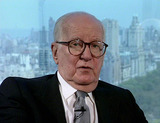Kurt Gerron: Letter to Paul Kohner (24 January 1938)
Kurt Gerron: Letter to Paul Kohner (24 January 1938)
I must tell you, however, that at the present time particularly it is almost impossible to bring a European character actor over here. Of course, miracles happen from time to time and I assure you that I will do my very best to try and obtain an offer, but very few people would be willing to bring an actor of your type over from Europe.
Paul Kohner to Kurt Gerron, Los Angeles, 16 February 1938
For any artist whose primary tool is language, the use of the native tongue carries particular existential importance. Wordplay, allusions and double entendres are only truly ever mastered by a native speaker. The decision to leave the creative realm of one’s mother tongue is thus a difficult one for any artist in whose art language plays a central roel. Kurt Gerron had celebrated a host of successes as a cabaret artist, actor and director in the fields of theatre and film in Germany but, as a Jew, he was banned by the Nazi regime from plying his trade at home. Hoping for a swift end to Nazi power, Gerron resided in the neighbouring countries of Austria, France and the Netherlands, earning his living as a director. He always remained prepared for any opportunity that would allow him to return home, however. He rejected offers of help from influential friends such as Marlene Dietrich and Peter Lorre, who wished to assist him in finding employment in the United States. By 1938, however, Gerron had become open to the idea. He wrote to Paul Kohner in Hollywood, who was in the process of setting up a talent agency. Gerron asked for Kohner’s help in finding work, but the latter’s response was not encouraging. In his reply, dated February 16, 1938, Kohner asked Gerron to send on photos and, if possible, film extracts. Kohner would then try his best to find Gerron offers of work. He conceded, however, that Gerron’s chances of being hired were not good – European actors were, at that point in time, not in demand in the USA.
Gerron remained in Europe and was murdered in Auschwitz in 1944.





